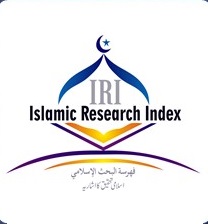‘Destroy Them Totally’ – Towards An Understanding Of Violence Passages In The Bible
DOI:
https://doi.org/10.58932/MULF0033Abstract
Many modern readers of the Bible are shocked at the depictions of violence found in certain passages within its pages, and their dismay is confounded by the apparent Divine sanction given to some of this violence. Other readers, past and present, have used these ‘violence passages’ to justify their own violence in the name of religion. This article will focus on passages in the books of Deuteronomy and Joshua, which present the most extreme cases of ‘Biblical violence’, portraying God commanding the Israelites to destroy totally the inhabitants of the lands they are about to possess, and the Israelites implementing this command. We will attempt to dig beneath the surface of these texts to understand them in their historical and literary contexts and also how they function within the framework of the wider body of Scriptures of which they form a part. We will endeavour to present a more nuanced and sophisticated reading of these texts. Lastly, we will attempt to demonstrate that these passages can never be used as justification for religious-based violence today.
References
Butler, T. C. (2014). Word biblical commentary/volume 7B Joshua 13-24. Word biblical commentary.
Cowles, C. S. (2003). Show them No Mercy: 4 Views on God and Canaanite Genocide. Zondervan.
Dagli, C. K. (2015). Conquest and Conversion, War and Peace in the Quran. The Study Quran. A New Translation and Commentary, 1805-1817.
Dawkins, Richard (2006). The God Delusion. London: Random House.
Earl, Douglas S. (2010). Reading Joshua as Christian Scripture. Penn State University Press.
Edwards, James R. (2015). The Gospel according to Luke - Pillar New Testament Commentary. Grand Rapids: Eerdmans.
France, R. T. (2007). The Gospel of Matthew (New International Commentary on the New Testament). Grand Rapids,
Eerdmans, 2007. Revue d'Histoire et de Philosophie religieuses, 88(3), 366-366.
Grundy, Stanley N. (Ed.). (2003). Show them No Mercy: 4 Views on God and Canaanite Genocide. Grand Rapids: Zondervan.
The Holy Bible, New International Version (NIV). (2011). London: Biblica.
Ibn Kathîr. (2003), Stories of the Prophets, English translation, Rashad Ahmad Azami, Riyadh, Darussalam.
Lynch, Matthew J. (2023). Flood and Fury: Old Testament Violence and the Shalom of God. Downers Grove: InterVarsity.
MacLeod, Donald. (2002). A Faith to Live By: Understanding Christian Doctrine. Fearn, Ross-shire: Christian Focus.
McCallum, Richard (Ed.). (2018). Hikmah Study Guides: Christians, Muslims &… War. Oxford: Centre for Muslim Christian Studies.
Moberly, R. W. L. (2013). ‘Election and the Transformation of Ḥērem’ in Gary A. Anderson, Joel S. Kaminsky (Eds.) The Call of Abraham: Essays on the Election of Israel in Honor of Jon D. Levenson. Indiana: University of Notre Dame Press.
Rowe, C. Kavin. (2006). Early Narrative Christology: The Lord in the Gospel of Luke. Grand Rapids: Baker.
Volf, Miroslav. (1996). Exclusion and Embrace: A Theological Exploration of Identity, Otherness and Reconciliation. Nashville: Abingdon Press.
Webb, William J. and Oeste, Gordon K. (2019). Bloody, Brutal and Barbaric?: Wrestling with Troubling War Texts. Downers Grove, Illinois, InterVarsity Press.
Wright, Christopher. (1996). New International Biblical Commentary: Deuteronomy. Peabody, Massachusetts: Hendrickson Publishers.
Wright, Christopher J. H. (2009). The God I Don’t Understand: Reflecting on Tough Questions of Faith. Grand Rapids: Zondervan.
Downloads
Published
How to Cite
Issue
Section
License
Copyright (c) 2024 South Asian Journal of Religion and Philosophy (SAJRP)

This work is licensed under a Creative Commons Attribution-NonCommercial 4.0 International License.









